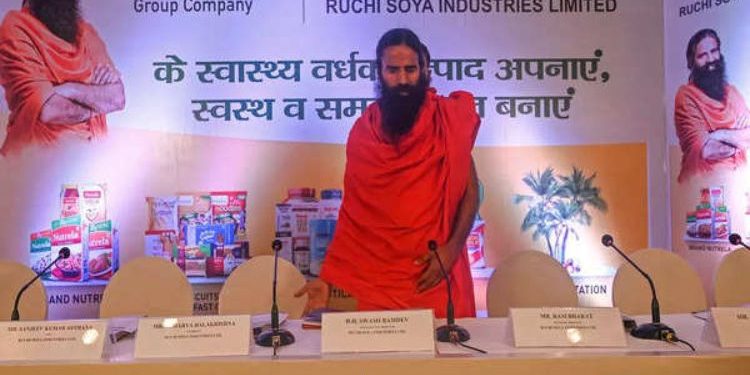Introduction:
In a significant development, Ruchi Soya Industries, a leading Indian edible oil manufacturer, has announced its decision to change its name to Patanjali Foods Limited. The decision was approved by the company’s board of directors, and it is expected to have a significant impact on the Indian FMCG sector. Patanjali, the brand owned by Yoga Guru Baba Ramdev and Acharya Balkrishna, is known for its Ayurvedic and natural products. With this move, Patanjali will consolidate its position in the Indian market and leverage the strong brand image it has built over the years. In this article, we will discuss the implications of this decision and what it means for the future of Patanjali Foods.
Background:
Ruchi Soya Industries is a leading Indian edible oil manufacturer that was acquired by Patanjali Ayurved Limited in 2019. The acquisition was a significant milestone for Patanjali, which had been eyeing the edible oil segment for some time. The acquisition of Ruchi Soya gave Patanjali access to a wide distribution network and a diverse product portfolio. Ruchi Soya had a strong presence in the Indian market, with its flagship brand Nutrela being a household name. The acquisition also gave Patanjali access to Ruchi Soya’s extensive manufacturing facilities and research capabilities.
With the acquisition of Ruchi Soya, Patanjali became the third-largest packaged food company in India, with a market share of 10.2%. The company had ambitious plans to expand its presence in the Indian FMCG sector and compete with established players like Nestle, Hindustan Unilever, and Britannia. The decision to rename Ruchi Soya to Patanjali Foods is a strategic move towards achieving this goal.
Implications of the Decision:
The decision to rename Ruchi Soya to Patanjali Foods is expected to have significant implications for the Indian FMCG sector. Patanjali is known for its Ayurvedic and natural products, and it has built a strong brand image over the years. By leveraging this brand image, Patanjali Foods can expand its reach and consolidate its position in the Indian market.
The move is also expected to boost the stock price of Patanjali Foods. After the announcement of the decision, the stock price of the company surged significantly. The decision is likely to attract more investors and boost the stock price even further in the future.
The decision to rename Ruchi Soya to Patanjali Foods is also a strategic move towards diversification. Patanjali has been primarily known for its Ayurvedic and natural products, and the decision to enter the edible oil segment was a significant shift for the company. With the acquisition of Ruchi Soya, Patanjali entered the mainstream packaged food market. The decision to rename Ruchi Soya to Patanjali Foods is a step towards consolidating its position in the packaged food market and diversifying its product portfolio.
Future Outlook:
The future looks bright for Patanjali Foods after the decision to rename Ruchi Soya to Patanjali Foods. The move is expected to help the brand expand its reach and consolidate its position in the Indian market. Patanjali has ambitious plans to expand its presence in the Indian FMCG sector and compete with established players like Nestle, Hindustan Unilever, and Britannia. The decision to rename Ruchi Soya to Patanjali Foods is a significant step towards achieving this goal.
Patanjali has been known for its Ayurvedic and natural products, and the decision to enter the packaged food market was a significant shift for the company. However, the acquisition of Ruchi Soya gave Patanjali access to a wide distribution network and a diverse product portfolio. With the decision to rename Ruchi
Conclusion:
The approval by the board of Ruchi Soya to change its name to Patanjali Foods and to issue additional shares has generated significant interest in the Indian business community. The move is seen as a strategic one by Patanjali to expand its presence in the FMCG sector and take advantage of the growing demand for healthy and natural products in India. The surge in the company’s stock price after the announcement also indicates a positive response from investors. Overall, this development marks a significant milestone for Patanjali and is likely to have a significant impact on the Indian FMCG industry.
FAQs:
What is the current market share of Patanjali in the FMCG industry in India?
As of 2021, Patanjali has a market share of approximately 5% in the Indian FMCG industry.
What kind of products does Patanjali manufacture?
Patanjali manufactures a wide range of products, including Ayurvedic medicines, personal care products, food items, and home care products.
Who is the founder of Patanjali?
Patanjali was founded by Baba Ramdev, a yoga guru, and Acharya Balkrishna, a businessman, in 2006.



